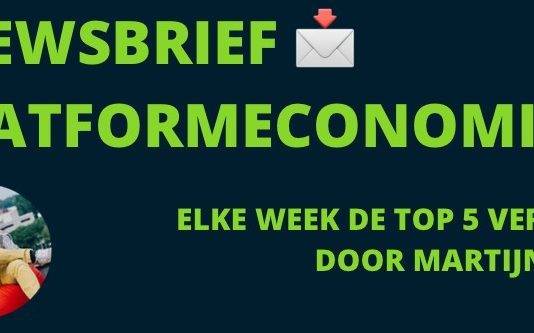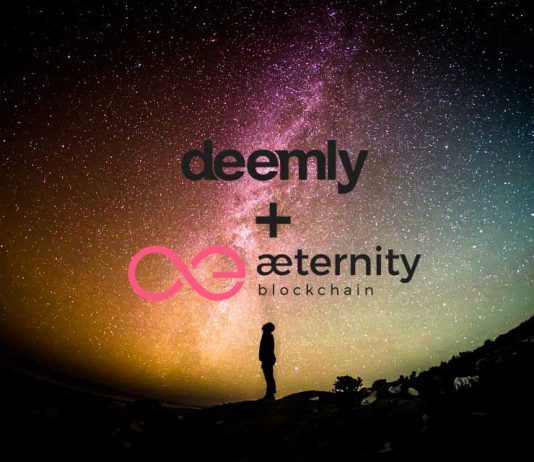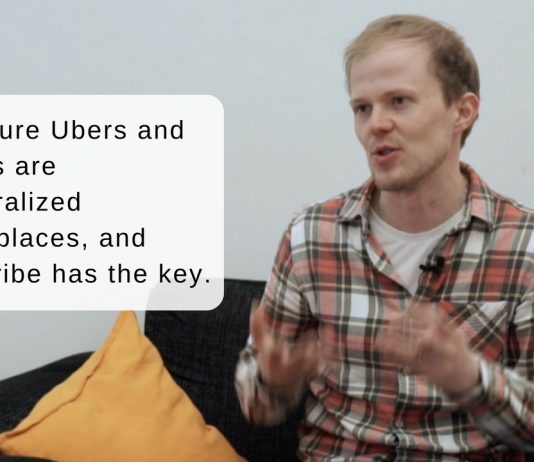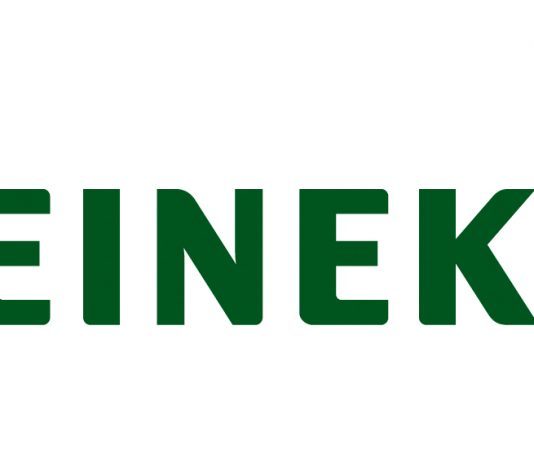Marcel van Marrewijk's Blog, page 119
August 8, 2017
Minimalism – a documentary about the important things

Two years ago, when I didn’t have any idea I would be living in the Netherlands someday, I wrote about a documentary that was about to be released. The name of the documentary? Minimalism, a documentary about the important things. And by the end of it, I would like to recommend it to everyone again.
Let’s make one thing clear before I talk a bit more about the movie. The minimalism in question is not about throwing away all your stuff. It’s just about getting rid of the thing you do not need. For different people, the need can be different, of course. So the essential for one might be the trash for the other. The real exercise here is to ask yourself what is it that you need indeed? Forgetting about what the commercials and people around you say. Just, truly, what YOU need.
That’s what the documentary exercises and that’s why I would recommend it to everyone. In the film, they talk to several different people who exercise minimalism in different ways. Some live in a normal house but only have what they need. Some live in tiny houses as small as 8 m², some are nomads and only own what airplanes allow you to transport on a commercial flight.
The documentary follows Joshua Fields Millburn and Ryan Nicodemus. The two Americans worked with publicity and feeling unhappy decided to adopt minimalism, and now they spread it via their website, the minimalists. There they write blogs telling their experiences and what is happening around the world and other’s people’s stories. The movie was shot while they were on tour for their book: Everything that Remains.
The post Minimalism – a documentary about the important things appeared first on Seats2meet.
August 7, 2017
5 Entrepreneurship lessons we can learn from Game of Thrones

I have a confession to make. Every Monday since the season 7 of Game of Thrones started, I can only think of the show. I read all the articles and hunt for the next week’s preview, which I stop every second of it for a deeper analysis. Am I a bit crazy? Yes. I have no shame in admitting it. And after last night’s episode, I had the insight that entrepreneurship and game of thrones have a lot in common. In both games, so to speak, only a small percentage of people succeed. So what are the lessons we can learn with the reminiscent survivors?
1. Go big or don’t even bother
Ok, that might sound pretentious, but if we don’t start your endeavor with the intention of being something amazing, the chances are small it will succeed. I mean, I haven’t heard a story of any entrepreneur who thought ‘oh well, I am going to take a lot of risks by being an entrepreneur just to do an average business.’ I mean, that’s not at all the point of taking risks. In Game of Thrones, you can see that the characters that didn’t want to be there ended up in a tragic fate. At least most of them, Jon Snow is the only one I can think didn’t want to lead, but hey, he got killed anyway. In the real world, there is no fire witch to bring you back to life.
2. Have a mission
That’s an important one. I am reading the first book now and remembering some stuff. And one of the things I have been noticing is that the people who have the power but don’t know what do with get lazy, fat, mad and finally, dead. Even when you are established, remember to have a mission, a vision you can follow. That’s what keeps people, companies and even nations going. It is ok and necessary to stop and look around and enjoy it, but don’t settle down too much.
3. Expect the unexpected
On the third episode of this season, Littlefinger released some wisdom, and it stuck with me.
“Don’t fight in the North or the South. Fight every battle everywhere, always, in your mind. Everyone is your enemy, everyone is your friend. Every possible series of events is happening all at once. Live that way and nothing will surprise you. Everything that happens will be something that you’ve seen before.”
I am not telling anyone to fight or to be paranoid. But think and be aware of all scenarios also help you innovate and be prepared. As the S2M team and I were discussing, innovating is being able to see the trends and not just get the first solution we think of, but addressing the trend and needs as good as you can. And that might be a totally new solution. One example of it, it’s how Cersei eliminated the high sept and ~almost~ all her enemies with wildfire. I mean, you probably didn’t see that coming but it was a genius combination of resources and timing. Even Olenna said she lost for lack of imagination. Again, not that you should burn church filled with people. The lesson here is to think about all the resources and situations and get the best combination possible.
4. Chaos is a ladder, but not for everyone
Continuing with Littlefinger’s wisdom, in the last episode we were reminded of a speech where he said chaos is a ladder.
‘Chaos isn’t a pit. Chaos is a ladder. Many who try to climb it fail and never get to try again. The fall breaks them. And some, are given a chance to climb. They refuse, they cling to the realm or the gods or love. Illusions. Only the ladder is real. The climb is all there is.’
I think Airbnb and Uber know this quite well. They are completely new business models that thrived especially because of an economical crisis. But again, the reality is way lighter than Littlefinger’s speeches. The climb isn’t all there is and love or god isn’t an illusion. The thing is that in times of chaos (crisis) there are a lot of entrepreneurs who can take good advantage of it by again, being aware of trends and needs and addressing them. But it isn’t for everyone, and that’s also ok.
5. Have allies
Not everyone is competition. Actually, the more people we have working together with us the better. And we keep learning that in the game of thrones each season, right? Of course, having dragons helps, but you are nothing without other people to help you out.
6. Don’t walk in a straight line.
I am looking at you, Rickon. Don’t be too stiff, making some curves along the way helps a lot. Just read the lean startup and you will understand what I am talking about.
The post 5 Entrepreneurship lessons we can learn from Game of Thrones appeared first on Seats2meet.
August 6, 2017
Laatste aflevering AFM en deelfietsen reeks | Pipelines vs platforms | Helpling verbreed businessmodel

Deze week de laatste ‘aflevering’ over de AFM suggesties voor de toekomst van de crowdfundingmarkt en de berichtgeving rondom ‘deelfietsen’ in Amsterdam. En dan knijp ik er ook even voor twee weken vakantie tussenuit. Deze week ook besloten om de crowdfundingcampagne een maand extra door te laten lopen. Met een kleine 80 procent op de teller zijn er nog flink wat organisaties die overwegen mee te doen, maar ook daar ligt alles ivm de vakantie stil. Dus geef ik ook hen wat extra tijd. Mooie dag en tot over twee weken!
Platformeconomie top 5
Crowdfunding hoort thuis op een door de AFM gereguleerde beurs | Het Financieele Dagblad
De week na de berichtgeving van de AFM heeft bijna ieder platform wel zijn plasje over de voorstellen gedaan. Opvallend is dat iedereen opeens het braafste jongetje van de klas is. Dat zal ook wel iets te maken hebben met de onderhandelingspositie met de AFM 
August 4, 2017
NASA is looking for a Planetary Protection Officer

This opportunity is an extraordinary one. NASA is looking for someone protect our whole planet, and everywhere else the human race dares to go. Cool right? Well, although the job might seem as wearing a cape and flying around saving vulnerable people, that’s not quite the assignment in hand. While you will get the awesome job title, you won’t get a cape.
When we go to Mars or wherever interplanetary destination, an international agreement imposes that there should be less than one in ten thousand chance of contaminating the destination. And that’s where the planetary protection officer gets in. He or she is responsible for making sure that’s the case when we send someone or something out there. The same goes when things are coming back. We don’t want to bring a super-alien-virus to earth right? Yes, not all heroes wear capes.
 Catharine Conley, the current planetary protection officer.
Catharine Conley, the current planetary protection officer.The cool title was owned previously by Catharine Conley, who told Business Insider the job is now open as NASA decided to reallocate it another department
Digital Identity, Privacy and Security in The Modern World

In the modern world, technological innovations arise at a breathless pace. It’s often difficult to keep track of the latest trends and predict which will become permanent fixtures in society. Our increasingly-interconnected world bombards people with an enormous amount of information that is impossible to consume entirely. It’s difficult to sort through all the self-promotion, armchair speculation, and sponsored content to form a balanced analysis of the latest technologies and rising trends. Instead, it’s more useful to look at the undercurrents beneath the tides of innovation. More specifically, the themes of digital identity, privacy, and security lay at the heart of all disruptive innovations like Bitcoin, mobile applications Signal and WhatsApp, and social media and sharing economy platforms.
The Big Picture
Companies and governments fight for control over access to user information in order to maximize advertising dollars, maintain political power, and monopolize marketplaces. Until the rise of sharing economy platforms, large traditional companies had a complete monopoly in a variety of industries, such as hospitality, personal banking, finance, and taxi services. Now companies have shifted power back to the consumer by allowing individuals to assume the role of these entities in peer-to-peer transactions. Already, the sharing economy has seen extremely rapid growth and will continue to become a part of everyday life.
Despite the disruption the sharing economy has generated, there’s still control over user information in the hands of private companies. While the sharing economy has helped to reduce the power of large, traditional corporations, individuals must still place a lot of trust in the security promised by the companies who built any given sharing platform.
However, new technologies emerged, affording individuals greater and secure control over their own data.
Reputation Services And Blockchain
Usually, user ratings & reviews are tied to a single platform and individuals have to start from scratch if they want to build their reputation on another sharing platform. Thus, deemly affords users greater control over their data by allowing them to utilize their entire digital reputation as leverage to prove their trustworthiness across peer-to-peer marketplaces. Users can voluntarily connect their social media and sharing platform accounts in order to use their trust profile, which is based on the ratings and reviews they’ve received on connected accounts. All of this happens when users sign up to a new platform and the deemly technology extends the sign-up flow with a seamless integration where users can build their trust profile.
Mixing user identity and rating services with blockchain technology could result in an even better final product. As mentioned above, ratings and reviews are usually related to a specific service and are owned by the company/person behind it. You may have a very high rating on a certain website, but if that website disappears your clout there will also perish. The structure of the current digital reality is based on clusters of information, made available by large companies. Our online existence is entirely dependent on centralized services. Our digital identities and reputation are owned by a handful of people. We pay them with information about ourselves, oblivious about how that information is actually used (and by whom).
There might be a better way to organize our presence in the digital space.
“Digital identity on the blockchain is a match made in heaven, keeping our personal information secure and private but shareable on a trusted network, and made available only to those that need to know” (1)
Blockchain technology provides a new way of storing information without the need of a central authority. In the case of Bitcoin, the blockchain stores information about the balance of each Bitcoin address. The same approach could be applied to many other types of information. Data about anything that could be represented digitally can be stored on a blockchain and made accessible by anyone with the proper decipher tool.
Immutable, public and at the same time – encrypted information could be the key to better identity and reputation solutions. Systems that provide users with the ability to have improved control over their digital privacy, sharing personal information only if needed.
Unlocking The Future
Services like deemly will continue to act as trusted third parties who confirm the validity of user-provided information, but the information itself will not be owned or stored by them. Once confirmed, it will be up to the user to delete it or provide all or part of it to other services.
In order for this to be realized, blockchain technology would need to evolve. The primary problem of public blockchains today is the high cost of adding information. In Bitcoin, for example, in order to “write” on the blockchain one needs to do a transaction. Once written and stored (added to a valid block), the information cannot be edited. The only way to change the information is to “replace” it with a new one (the old data will still be there). That requires doing another transaction, which currently costs between 1.5 and 3.5 USD. That is quite expensive, having in mind the number of users that may be interested in using such a platform. The world needs a more affordable solution. That will be available soon.
In addition, æternity is building a public blockchain for a scale that could address the needs of an application-rich environment. They want to provide users worldwide with a platform that could handle the heavy transactional load at a low cost. The key to achieving this goal is a new technology that enables “state channels”. They run in parallel to the blockchain and reduce its load significantly without compromising security.
Whether it will be æternity, the lightning network in Bitcoin, the “Proof of Stake” upgrade of Ethereum or any other emerging project, scalable blockchain technology will change the world for the better.
Scalability improvements in blockchain technology will enable the creation of powerful decentralized applications, changing the paradigm for online digital identities and reputation systems. We are the beginning of a revolution as big as the internet that will allow users to manage their online presence better, protect their personal data and even be financially rewarded for revealing information about their tastes, character, and habits. This will enable a true sharing economy by reducing the frictions of economic interaction for individuals on a global scale.
NOVAE – An aesthetic vision of a supernova from Thomas Vanz on Vimeo.
1) It Was Only a Matter of Time — Digital Identity on Blockchain, March 24, 2017 By: Stewart Bond
This article was written in collaboration with Vlad Dramaliev, Marketing and Community Manager at æternity and originally published at deemly.co
The post Digital Identity, Privacy and Security in The Modern World appeared first on Seats2meet.
This coffee place in Milan was made by Moleskine for you to work… offline

Moleskine is a brand that aims to bring back the classic notebooks that philosophers and artists used in their work. Among those, they quote Vincent van Gogh, Pablo Picasso, and Ernest Hemingway. All of those who worked without any internet or electronic devices.
Following this concept, and the location independent trend, the brand decided to launch a space in Milan where people are most welcome to work and collaborate with each other. Different from the other cafes, this one is completely offline.
As you could imagine the space is filled with inspiration and hosts artistic events constantly. From book launches to concerts and exhibitions, the idea is that you never have to go to Pinterest or Instagram for inspiration. You can find it all there. Another infinite source of inspiration is the people around you, of course. So, when is your next visit to Milan? I know where I would go. 
August 3, 2017
How Insurance and Trust Profiles Compliment Each Other in The Sharing Economy

Insurance plays a crucial role for sharing economy platforms by providing users economic safety when they lend or rent their homes, cars, or other belongings to strangers. Platforms that offer their own insurance or make themselves compatible with insurance providers have an edge over the competition. Ensuring user assets is part of an abstract goal that P2P businesses must achieve in order to incentivize increased user participation. Thus, fostering multi-leveled trust will secure the growth of a sustainable and safe community.
In an earlier post we explored the three levels of trust every platform needs to cultivate:
Trusting the concept
Trusting the business
Trusting your peers
There isn’t much to say about growing trust for a P2P business’ concept. It’s less likely that people will change their mind if they don’t like the sharing economy or the idea of peer-to-peer transactions. Resources are better spent improving the second and third levels of trust for a given platform.
The Role of Insurance
Insurance has to do with the second level of trust, trusting the business. Marketplaces owners can show they care about protecting their users’ belongings by making their services compatible with insurance providers or offering their own insurance.
Companies like Guardhog specialize in the sharing economy and provide customizable insurance for assets rented out through sharing services. Accessible and affordable insurance encourages more platform activity and contributes to the sharing economy’s growth.
With the annual increase in platform transactions, PwC predicts that the European sharing economy will reach €570 billion in transactions and €83 billion in platform revenue by 2025. As a result, the demand for insurance will increase as well.
The Trust Profile
The 3rd level of trust, trust between individuals, involves building trust between people on P2P platforms. Achieving this is a two step process. Firstly, users need to be able to show other participants information about themselves. Secondly, sharing economy marketplaces need tools for displaying this information.
In order to encourage trust, user profiles should have a quality profile picture, display qualitative information through ratings and reviews, and have a comprehensive personal bio. Moreover, an ID verification feature will also secure a person’s identity.
Deemly brings all this information together in the Trust Profile. In addition, we include user reviews from other platforms for more comprehensive insight into a user’s character and past behavior. After acknowledging this information, participants can decide whether they want to engage in a sharing transaction with a given individual or not.
Insurance and Trust Profiles Create More Activity
If you as a platform owner cover the two levels of trust that we discussed above, you will be on the right path to creating a community where your peers will feel the necessary safety to start sharing, renting and interacting. As a result, you will generate more activity and successful transactions among your users.
When all your users feel safe, they will be more likely to use your sharing service more, which will grow both your community and your platform.
This article was originally published on deemly.co
The post How Insurance and Trust Profiles Compliment Each Other in The Sharing Economy appeared first on Seats2meet.
August 2, 2017
The future Ubers and Airbnbs are decentralized marketplaces, and Sharetribe has the key.

Becoming the world’s biggest taxi company without owning even one single car. This was Uber’s promise, and accompanied by Airbnb they unfolded like textbook cases for exponential scalable growth of the platform economy over the last years. Growing by facilitation, without carrying the risk of the traded assets. It provided Uber 12 billion Dollar investment money and a corporate valuation of roughly 70 billion Dollar.
This success story soon started to show its first cracks, with the leave of Uber founder Travis Kalanick last month being a highlight. Not only has the exponentially growing company, with a momentary corporate value of about 70 billion, a cultural problem. It also becomes clearer by the day that, while the customers are satisfied with Uber’s user experience and their prices, the drivers are being neglected in many ways. The question rises more and more frequently: What would be the alternative?
NETWORK EFFECT
Within the platform economy, social media companies like Facebook, Youtube, and LinkedIn have been around for a long time. Now there appear organizations that don’t own anything, but have started successful businesses by taking on a facilitating role.
The platform economy is a sector in which online platforms facilitate individuals to share assets and to make transactions.
Until 2009 these transactions only took place in the digital domain. And as we live in a growingly internationally operating world, it was expectable that for each segment one dominant platform would surface. Everybody being on Facebook, requires every newcomer to go there where everybody is: on Facebook. This so-called ‘network effect’ results in entire markets being governed by only one player, and makes almost impossible for another (new) player to claim this position.
MATCHMAKING PROCESS
From when the sharing economy (Airbnb, Peerby, Snappcar) and gig economy (Uber, Helpling, Werkspot) arose, it soon became clear that this game has a different dynamic. Although the matchmaking processes of these kinds of platforms are executed in the digital domain, yet they are followed by a real world physical transaction.
One example: the client ordering a cab through the Uber platform is connected with a driver, and meets him physically. Which implies a good chance that they live in each others proximity, as there surely is no added value for the driver in driving hours to the spot where he can pick up his clients.
By keeping the transactions local, the competitive advantage of one single international player to whom everyone is connected is a whole lot smaller. What remains is the advantage of a strong –but fragile– brand and the fact that building a software solution is a costly matter. And exactly that is the solution provided by the Finish company Sharetribe. Sufficient reason for me to hit the road to Helsinki and meet up with founder and chairman Juho Makkonen.
WORDPRESS FOR MARKETPLACES
Sharetribe was birthed in 2013, when entrepreneur Juho and his co-founder failed twice in building there own marketplace. Juho, “We realized that we, as well as our fellow entrepreneurs, spend far and beyond the most money on building our own software solutions. And software, however an important part of the solutions we built, wasn’t the key to our success.”
The idea arises to build a WordPress-like model for online marketplace software, to enable everyone to realize their own (local) Airbnb or Uber. At this point it is possible to launch a state of the art marketplace with Sharetribe, without having any technical skills. This enables the initiator to fully focus on engaging and activating the community, which by using your solution turns the concept into a success.
SPACE FOR AND FOCUS ON LOCAL NICHES
Juho confirms my previous assumption that it is hard to build or offer a universal broadly applicable solution. And states, “When taking a look at the growth of a platform like Uber, we see they expand by taking city by city. Each city houses completely different citizens. Of course, the renown of a brand and past experiences are an advantage, but still you start every city from scratch. Having about a 1,000 drivers in one city, doesn’t help you a bit in the next city. The American gig platform Taskrabbit took an even more extreme approach: they grew ZiIP code by ZIP code.” This challenging growth strategy makes clear that the promise of platforms to lower transaction costs becomes very precarious, a second assumption Juho confirms during our conversation.
Juho continues, “A second challenge for platforms is that they can only be successful at the time they focus on a specific ‘vertical’. The booking flow for the sharing of a car is entirely different from the process of sharing accommodations. This, however, seems to be a similar process to the outside world, yet in fact it is very distinct. It is virtually impossible to be a successful platform, when you could share ‘anything’. In many verticals it is, given the current pattern of expenses, nearly impossible to start a healthy business. Especially when taking into account the profits needed to attract Venture Capital investors. The only option left is a drastic cut in the expenses. And especially that is what we are providing. Amazon’s Jeff Bezos put it clear by stating that, ‘Your margin is my opportunity.’”
BEYOND TECHNOLOGY
Currently 40.000+ persons have created a test account on the platform and about 700 members own a paid subscription. They originate from over 50 different countries. Does that make Sharetribe a success? Juho: “When we launched our platform, we discovered that the greatest challenge of our clients isn’t only in the building of an online market place, but the building of a successful one. From the time one has developed their website, things have just started. Ultimately, a successful marketplace is a marketplace where supply and demand meets each other. This reaches far beyond technology”. The success of an Airbnb isn’t so much their technology, as an in-depth study would show that it isn’t overly unique. It’s all about the execution strategy.
To help their clients to be successful, Sharetribe started their own ‘academy’ last year. An online course based on experiences of successful marketplace entrepreneurs helping users successfully building and expanding their model.
“We bring along 10 years of experience in building successful marketplaces, but have also gathered a lot of data about cases that worked and that didn’t work. In the years to come, I can imagine myself using these data to help clients become successful.” This, moreover, would be a great addition to our current business model, facilitating hosting.
FUTURE
The discussions about platforms like Airbnb and Uber have definitely not passed Juho’s attention. “The current platform model pulls much value from the society and her users, without taking– the responsibility involved. Personally, I advocate models that combine ‘profit’ and ‘purpose’. In my opinion, we’re moving more and more to solutions which deliver on the promise of a more democratic internet.” Sharetribe being launched as an open source solution from day one, shows that Juho walks the talk.
His ambitions reach beyond, “Right now we are relatively traditionally structured as an organization. Though, I believe in a future where platform organizations will shift to a model of ownership and governance by users themselves.” Currently the rise of platform cooperatives –platforms which are being owned and governed by their respective owners– is significant in America. In Denver, CO, 800 taxi drivers invested 2.000 USD each to launch there own cooperation and the building of their own app, gaining them a current market share of 34 percent within their own region. Juho: “That is the real future to me: the transition away from global to local platforms, niche platforms owned by users. This is my every day motivation to invest my time and energy in my company; making this ambition become reality.”
The original blog and interview was posted on Intrapreneur.nl
The post The future Ubers and Airbnbs are decentralized marketplaces, and Sharetribe has the key. appeared first on Seats2meet.
The Student Hotel is looking for a Connector

Opportunity via The Student Hotel
Job description
One mission: connect people and make the world a better place
Some of the phrases people use to describe you: the life of the party, a social butterfly, the human embodiment of Six Degrees of Kevin Bacon, the people encyclopedia, a born storyteller. Your student-at-heart swag is contagious. You encourage people to meet, get inspired and have fun. And you do all this, just by being you.
Sound familiar? Oh man, we’ve got the perfect role for you. Read on.
The TSH Connector is more than just the leader of our fun squad. A true connector turns our mishmash of hotel guests and co-working professionals into a cohesive community of both students and students-at-heart.
Your role is to open the door to the start of something beautiful – a new friendship, collaboration or unforgettable experience. You build relationships and partnerships. You create stories and adventures. You make everyone who steps through our doors feel like a part of The Student Hotel family.
Do you have what it takes to make it stick?
Tasks & responsibilities
Collaborate with product managers (semester, hotel, short stay, and F&B) to activate events that highlight and promote our TSH offering
Attract partners to create experiences and events related to our brand promise
Build relations with partners to fill a yearly calendar with recurring events such as exhibitions, sports activities, cultural events, language courses, social drinks, etc.
Organize activities to bring the community together & creates a memorable guest experience
Have awareness of/access to local activities and find collaboration potentials
Tell the TSH story by creating content
Come up with possible content concepts for our social & YouTube channels
Activate the online communities and manage the local TSH social channels within the brand guidelines
Collect guest data during TSH events
Attend and be an essential part of local network events
Process all your contacts, actions and activities, monitor your budgets in order to measure your performance
Requirements
Exceptional organizational and coordination skills
An outgoing and confident personality. You kill it in front of an audience
A vision on how to grow the company connector strategy
Fluent in English and Dutch (written and spoken), other languages a bonus
A proactive, hands-on mentality, drive and ambition to grow within the organization
A diploma. Or not. Convince us you’re smart, engaging, confident and a hard worker, one way or another.
You are
A connector
A communicator
Professional & responsible enough to work in a fast-paced, sometimes chaotic atmosphere
Extremely calm under pressure and can multitask with the best of them
Able to work independently
Super social, always flexible, incredibly motivated and never without a sense of humor
We offer
The opportunity to work at a dynamic, young, international organization. Not just another hotel, we’re a major game-changer: bringing hotel and student accommodation together in an innovative way
The chance to learn and grow in your role, with the potential for growth within or across the company
A part time job next to your freelance business
Access to TSH facilities, including our awesome staff canteen and gym
Cool events, fun colleagues, and all the regular salary/benefits
Salary between €1800 – €2500 based on a full-time employment
WE ARE TSH
The Student Hotel is a fully-integrated co-living and co-working space. We merge fully-equipped rooms, designer communal areas, flexible work environments and dining spaces to bring students, travelers, and mobile professionals together. TSH is growing FAST with new locations popping up all across Europe. We are committed to creating a network that spans cultural and educational backgrounds so different people can connect, learn and collaborate. Every member of the TSH family works with passion and positive vibes.
ARE YOU IN?
Great! Show us why you’re the one we want! We’d love to see who you are and how connected you are to your city. Bring that student-at-heart groove, swag, spirit, and spark to the camera in a short clip of max 1.5 – 2 minutes.
The post The Student Hotel is looking for a Connector appeared first on Seats2meet.
Heineken is looking for a Digital Media Manager

Ben jij in staat om nieuwe kansen te herkennen en om te zetten naar concrete voorstellen en acties? Wil jij meedenken over het effectiever en efficiënter inzetten van digitale media, met focus op “paid digital media”? Ben jij analytisch sterk en een challenging business partner die stakeholders kan overtuigen? Lees dan snel verder.
Als Digital Media Manager binnen HEINEKEN Nederland ben je verantwoordelijk voor een toenemende adoptie van Data-Driven Marketing binnen HEINEKEN Nederland. Hierbij zorg je voor integratie van interne en externe databronnen (o.a consumenten, verkooppunten, media en events). Op basis van datakoppeling en –analyse creëer je inzichten voor de Program Manager Digital, de Brand teams en E-commerce managers in welke digitale media inzet hen een zo gericht mogelijk bereik geeft van hun doelgroep.
Functieomschrijving
In deze nieuwe functie van Digital Media Manager ben je verantwoordelijk voor:
Het intellectueel drijven- en uitwerken van de data strategie / visie op doelen, databronnen, toepassing van die bronnen, (IT) implementatie en het eigenaarschap van data;
Het strategisch en operationeel leiden van de aanpassing en uitrol van de global ‘data-driven precision marketing’ agenda bestaande uit meerdere complexe media-technologische projecten en de daarvoor benodigde systemen;
Het (on)gevraagd adviseren van brand teams en de media manager op het gebied van middels data te defieren doelgroepen en hun media gedrag ten behoeve van de juiste creatieve conceptontwikkeling en media inzet bij campagnes;
Het (door)ontwikkelen van indicatoren en dashboards om de effectiviteit en efficiëntie van digitale media inzet te kunnen monitoren en daarop te kunnen sturen;
De kennisopbouw ten aanzien van online consumentenprofielen en – gedrag door het delen van uit data gegenereerd inzicht met het CMI team en de Consumer Data Analyst om kennis ten aanzien van online consumentenprofielen en -gedrag te verzamelen, verrijken en vast te leggen.
De standplaats van deze functie is Zoeterwoude en je rapporteert aan de Media Manager.
Je werkveld
Binnen HEINEKEN Nederland maak je deel uit van het Digital Acceleration team, een compleet nieuw team binnen de Marketing afdeling! De concrete rol en uitdaging van dit gecentraliseerde team is het realiseren van de versnelling van de digitale commerciële agenda en de digitale commerciële strategie van HEINEKEN Nederland. Vanuit deze geïntegreerde aanpak kan er meer consumer- en shopperdata verzameld worden. Op basis van deze inzichten kan er beter traffic gegenereerd worden naar on- en offline verkoopkanalen en kan media effectiever worden ingezet. Een mooie uitdaging! Samen met het team zorg jij ervoor dat de digitale capaciteiten binnen HEINEKEN Commercie worden uitgebreid.
Je profiel
Voor de functie van Digital Media Manager zijn wij op zoek naar een kandidaat met het volgende profiel:
WO-opleiding in commerciële of bèta richting;
Minimaal 3 jaar werkervaring met digital media;
Relevante kennis van data analyse;
Kennis van data-driven marketing ecosystemen, zoals DMP, DAM en DSP;
Commerciële inslag; in staat om nieuwe kansen te herkennen en om te zetten naar concrete voorstellen en acties;
Solide begrip van de FMCG business; affiniteit met media, marketing en de HEINEKEN merken;
Uitstekende communicatieve vaardigheden; in staat om een challenging business partner te zijn en stakeholders te overtuigen;
Uitstekende beheersing van de Nederlandse taal in woord en geschrift.
Proef de dynamiek!
HEINEKEN is ’s werelds meest internationale brouwer met meer dan 250 internationale en regionale bier- en cidermerken in meer dan 190 landen. Onze gepassioneerde collega’s werken elke dag met veel plezier om onze consumenten te laten genieten van onze mooie bier- en cidermerken als Heineken, Amstel, Brand, Desperados, Affligem en Apple Bandit.
In Nederland heeft HEINEKEN drie brouwerijen, in Den Bosch, Wijlre en Zoeterwoude, de grootste brouwerij van Europa. Daarnaast worden frisdranken gebotteld in Bunnik bij Vrumona, een dochteronderneming van HEINEKEN Nederland. Vrumona heeft een gevarieerd portfolio met merken zoals Royal Club, Crystal Clear, SiSi, Sourcy en Sourcy Vitaminwater. Daarnaast is Vrumona in Nederland de licentiehouder en leverancier van de merken Pepsi, Rivella, 7UP en Mountain Dew.
Het leuke van werken bij HEINEKEN is dat je bij ons altijd verder kijkt dan je eigen vak. Bij alles wat we willen verbeteren, zijn ook jouw mening en talent van belang. Zo kan het gebeuren dat je soms ver buiten je eigen vakgebied betrokken raakt bij een project.
Je arbeidsvoorwaarden
Naast een aantrekkelijk basis salaris biedt HEINEKEN meer. Wij vinden het belangrijk dat je je ontwikkelt als professional en dat je kunt doorgroeien binnen HEINEKEN. Ook vinden we het belangrijk dat we een moderne en flexibele werkgever zijn. We bieden je dan ook flexibiliteit in arbeidsvoorwaarden middels het HEINEKEN á la Carte menu waarin je keuzes kunt maken met betrekking tot je secundaire arbeidsvoorwaarden, bijvoorbeeld het kopen of verkopen van vakantie uren.
Tevens bieden we je onder andere een reiskostenvergoeding, een laptop en telefoon, mogelijkheid tot deelname aan de collectieve zorgverzekering, een pensioenregeling en, afhankelijk van je functiegroep, naast je vakantiedagen ook ATV dagen, voor een goede werk-privé balans.
Interesse?
Klik hier! Voor informatie over deze vacature of de sollicitatieprocedure kun je contact opnemen met Rob van Griensven (Head of Media, Sponsoring &CRM, Media, Sponsoring & CRM) via +31626520320. We zien je sollicitatie graag tegemoet.
Acquisitie naar aanleiding van deze vacature wordt niet op prijs gesteld.
Trefwoorden: Vacature, full-time, Zoeterwoude, Data-Driven Marketing, data strategie.
Meer informatie over deze vacature vind je hier.
Solliciteer
The post Heineken is looking for a Digital Media Manager appeared first on Seats2meet.



